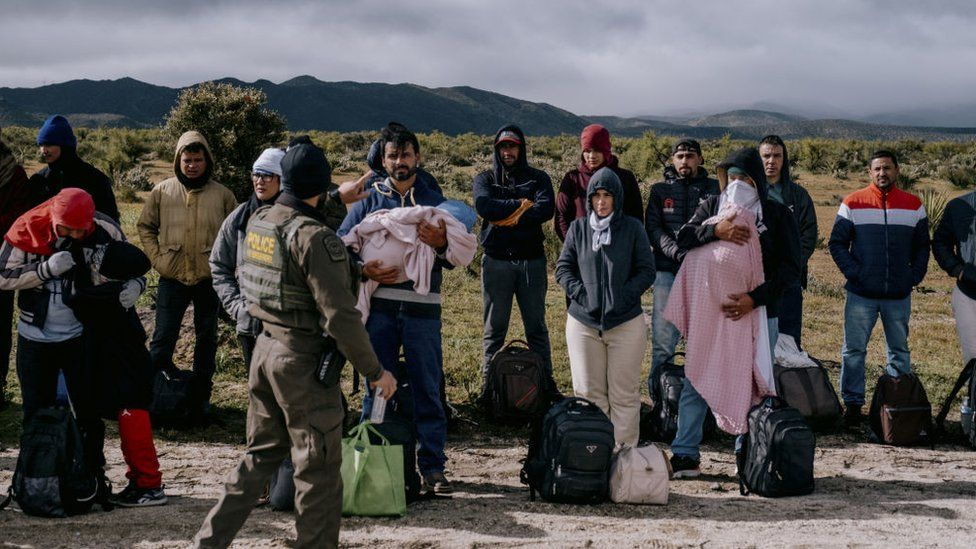In recent years, a notable surge in illegal border crossings has intensified the national discourse on immigration and border security, becoming a pivotal concern for voters leading up to the November US presidential election. While the focal point of the border crisis has traditionally been Texas, where Governor Greg Abbott has clashed with President Joe Biden over immigration policies, recent data indicates a westward shift in the geography of the US migration challenge, towards border states like Arizona and California.
San Ysidro, situated approximately 16 miles south of affluent San Diego, witnessed an 85% increase in crossings in February compared to the previous year, contrasting with Texas, which experienced a decline in illegal entries during the same period. According to CBS, the border crossing in Del Rio, Texas, registered only a few hundred apprehensions daily in January, whereas December saw a staggering 2,300 migrant crossings each day.
This shift in migrant flows can be attributed in part to the Texas governor’s crackdown on illegal migration and heightened security measures by Mexican authorities along the border.
The influx of individuals has overwhelmed resources in the San Diego area, with local officials reporting that up to 1,000 people per day are being released at city train and bus stops after being apprehended and processed at a nearby facility. Border Patrol agents begin intake procedures early in the morning, where migrants, following specific guidelines, line up to remove excess clothing and belongings before boarding buses bound for processing centers. Most intend to reunite with family, friends, or established networks in towns and cities across the US.
The dispersal of migrants throughout the country has strained communities, eliciting frustration among local officials and elevating immigration to the forefront of the political agenda. A March poll by The Wall Street Journal identified immigration as one of the top two concerns for registered voters in seven battleground states: Arizona, Georgia, Michigan, Nevada, North Carolina, Pennsylvania, and Wisconsin. At least 72% of respondents across these states expressed dissatisfaction with the country’s immigration policies and border security direction.

